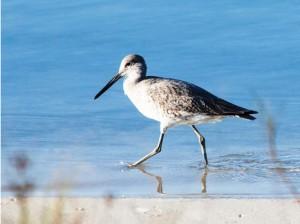The Trustees have selected and approved the latest round of Deepwater Horizon early restoration projects. The restoration plan includes 10 projects totaling an estimated $134 million. The Phase IV Early Restoration Plan and Environmental Assessments (PDF, 1,198 pages) is consistent with our strategic plan for early restoration activities.
We received 2,600 public comments that were considered in developing the final plan. The approved projects will benefit sea turtles, birds, and fish; increase recreational opportunities; and improve nearshore and reef habitats. Out of the $134 million, about $126 million (94% of the total) will be devoted to ecological projects. About $8 million (6% of the total) will be devoted to projects that address lost recreational use.
The projects are:
- Osprey Restoration in Coastal Alabama: Baldwin and Mobile Counties, Alabama
- Point aux Pins Living Shoreline: Mobile County, Alabama
- Point aux Pins Living Shoreline: Mobile County, Alabama
- Shell Belt and Coden Belt Roads Living Shoreline: Mobile County, Alabama
- Bon Secour National Wildlife Refuge Trail Enhancement: Alabama
- Seagrass Recovery Project at Gulf Islands National Seashore: Florida District
- Bike and Pedestrian Use Enhancements at Davis Bayou, Gulf Islands National Seashore: Mississippi District
- Restoring Living Shorelines and Reefs in Mississippi Estuaries: Coastal Mississippi
- Texas Rookery Islands: Galveston Bay and East Matagorda Bay, Texas
- Sea Turtle Early Restoration Project: Gulf of Mexico
- Oceanic Fish Restoration Project (formerly the Pelagic Longline Bycatch Reduction Project): Gulf of Mexico
Early restoration allows us to jump-start restoration using up to $1 billion BP has agreed to make available for early restoration. With these four phases, roughly $832 million of the $1 billion has been obligated.


